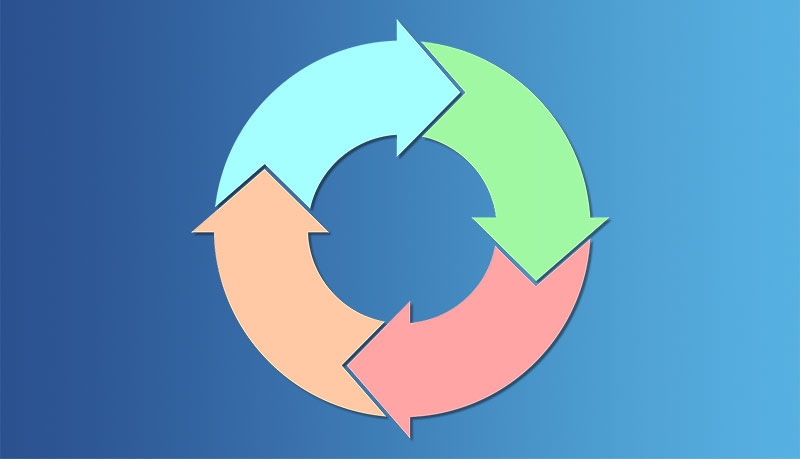Strategies For Difficult MCAT Passages: Biological and Biochemical Foundations
- by
Preparing for the MCAT often involves making decisions about passage strategy. After all, most questions on the exam are associated with a passage, and these passages may be dense or difficult to read. This problem can be especially relevant to the Biological and Biochemical Foundations section. Imagine clicking “Next” on your exam and seeing something like this:
HMG-CoA reductase catalyzes the rate-limiting step of cholesterol biosynthesis. Synthesis of the enzyme is controlled by a family of insulin- and sterol-responsive, ER membrane-bound proteins termed sterol regulatory element-binding proteins (SREBPs). Inactive SREBP precursor proteins are transferred from the ER into the Golgi, along with a second ER membrane protein, SREBP cleavage-activating protein (SCAP). In the Golgi, inactivated SREBPs are activated by two constitutively active mammalian proteases, S1P and S2P…
Have trouble focusing on that paragraph above? You’re not alone! MCAT bio/biochem passages often include a seemingly infinite number of proteins, compounds, or medications, each with its own confusing acronym. These compounds may have numerous relationships with each other, and it can seem impossible to keep track of all of them. But never fear! Below are a few strategies to utilize when attacking a bio/biochem passage that may look terrifying at first glance. Next Step Online MCAT Course students can also receive extra help with biochem passages during live Office Hours with an instructor!
1. Focus on the familiar, not the new
It’s tempting to highlight each new acronym you see in a passage (HMG-CoA reductase? SREBP? SCAP?). However, this is generally ineffective! The MCAT exists to test you on material that you have studied – the material that you’d see in any MCAT prep book. Any questions about SREBP or SCAP are likely to relate to that material. For this reason, I highly recommend highlighting the terms that are familiar, like “cholesterol,” “insulin,” or “ER membrane.”
2. Don’t try to absorb everything during your initial read-through
For many MCAT passages, it is virtually impossible to fully understand and remember the material in three minutes or less. Good news! You don’t need to! Much of the material may not appear in the questions at all, so time spent digesting it while reading is not productive. Don’t rush the reading, but don’t try to memorize every word either; move through the passage in 3 minutes or less, then go on to the questions. This brings us to our next point:
3. If a question references a compound/enzyme/process that you don’t remember, go back to the most relevant time it was mentioned in the passage
If you’re reading passages properly in 3 minutes or less, you’re bound to have to go back to answer some of the questions. This is a good thing – better to return to the passage than to answer from memory and risk mis-remembering! When deciding which part of the passage to consult, the question stem should be key. Try to be as specific as possible – if the question asks about “the inhibitor of compound A,” don’t just return to any random mention of compound A; go back to the discussion of its inhibitor. Finally, if you’re completely uncertain, start at the first place where the compound/enzyme was introduced and look for useful information.
4. Finally, don’t panic!
Remember that passage content is often supposed to seem unfamiliar, and that many other students probably feel just as you do. Stay calm, learn what you can from the passage, and then use your existing knowledge to do your best on the questions. With enough practice, you may soon wonder why you ever found these passages so intimidating.
If you need more help with biochem passages, we’ve got your back. Next Step is a leader in representative MCAT prep. The Next Step Online MCAT Course was created by experts with 524+ MCAT scores, including MDs and PhDs. We constantly update our MCAT practice tests to reflect the latest AAMC interface and changes; get a free full-length by signing up for the Free MCAT Practice Bundle. If you need more individualized attention, our MCAT tutors provide one-on-one MCAT tutoring personalized to address your unique needs and weaknesses. What works for some may not work for all, so it’s important to find the right MCAT prep that works for you. Schedule a free consultation with our experienced Academic Managers to start you on the path to MCAT success.
Good luck!
Written by Blueprint MCAT (formerly Next Step) content experts.
Search the Blog

Free Consultation
Interested in our Online MCAT Course, One-on-One MCAT Tutoring or Med admissions packages? Set up a free consultation with one of our experienced Senior Student Advisors.
Schedule NowPopular Posts
-
MCAT Blog What's on the MCAT?
-
MCAT Blog How to Review MCAT Full Lengths

Free MCAT Practice Account
Need great MCAT practice?Get the most representative MCAT practice possible when you sign up for our free MCAT Account, which includes a half-length diagnostic exam and one of our full-length MCAT practice exams.
Learn More







